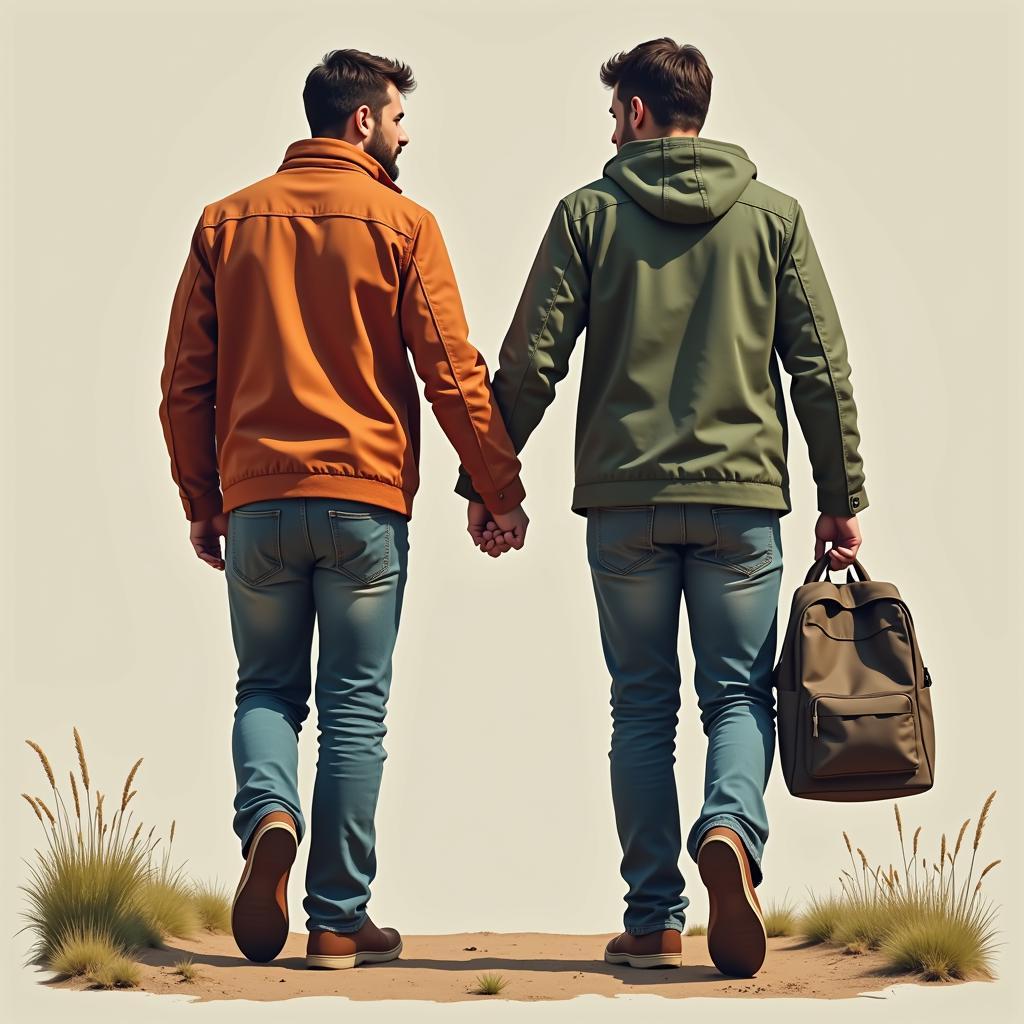African Gay Kissing: Exploring Love, Intimacy, and Challenges in the Continent
African Gay Kissing, a simple act of affection, carries profound meaning in a continent where cultural norms and legal frameworks often clash with LGBTQ+ realities. This article delves into the complexities surrounding same-sex relationships in Africa, exploring the cultural nuances, legal challenges, and personal stories that shape the experiences of individuals expressing love and intimacy through a kiss.
Cultural Perceptions of Same-Sex Relationships in Africa
Traditional African societies often hold deeply ingrained beliefs about gender roles and sexuality. While some historical accounts suggest the existence of same-sex relationships in pre-colonial Africa, the introduction of colonial laws criminalized homosexuality, influencing current legal frameworks and social attitudes. This legacy of criminalization continues to cast a shadow on LGBTQ+ lives, making public displays of affection like african gay kissing a significant act of resistance and self-expression.
Many African cultures emphasize communal values and family lineage, often leading to pressure on individuals to conform to heteronormative expectations. Marriage and procreation are seen as essential for societal continuity, which can create challenges for LGBTQ+ individuals seeking acceptance and recognition of their relationships. However, it’s crucial to avoid generalizations, as diverse views on same-sex relationships exist across the vast continent, varying significantly between urban and rural areas, and among different generations.
Legal Landscape and Challenges for African Gay Kissing
The legal landscape regarding homosexuality in Africa is complex and varied. While some countries have decriminalized same-sex relationships, many others still uphold colonial-era laws that criminalize same-sex acts, often with harsh penalties. In these contexts, african gay kissing, a private act of affection, can become a target of persecution and discrimination.
The legal framework often reflects societal attitudes, influencing access to healthcare, employment, and social services for LGBTQ+ individuals. Furthermore, discriminatory laws can embolden social stigma and violence, making it dangerous for individuals to express their love and intimacy openly.
Personal Stories and Experiences
Behind the headlines and legal debates are individual stories of love, resilience, and the pursuit of happiness. Hearing from LGBTQ+ individuals in Africa sheds light on the lived realities of navigating cultural norms, legal challenges, and personal relationships. These stories offer powerful insights into the complexities of expressing love in a context where such expression can be met with resistance and discrimination.
For many, african gay kissing becomes an act of defiance and a celebration of love in the face of adversity. It symbolizes the desire for recognition, acceptance, and the freedom to express affection without fear. These personal narratives help challenge stereotypes and foster empathy, paving the way for greater understanding and social change.
Dr. Adebayo Olufemi, a prominent sociologist specializing in African gender studies, emphasizes the importance of understanding the individual within the cultural context: “We cannot simply categorize experiences based on geography. It’s crucial to listen to the voices of LGBTQ+ Africans and acknowledge the diverse realities they navigate.”
 An image of two African men holding hands, symbolizing support, companionship, and love.
An image of two African men holding hands, symbolizing support, companionship, and love.
Conclusion
African gay kissing, a seemingly simple act, reflects the complex interplay of cultural norms, legal frameworks, and individual experiences within the context of LGBTQ+ rights in Africa. Understanding these complexities is essential for promoting inclusivity, challenging discrimination, and fostering a more accepting and equitable society. By amplifying the voices of LGBTQ+ individuals and advocating for legal reform, we can work towards a future where love and intimacy are celebrated, not criminalized.
FAQ
- What are the legal implications of same-sex relationships in Africa?
- How do cultural norms influence perceptions of homosexuality in Africa?
- What resources are available for LGBTQ+ individuals in Africa?
- How can I support LGBTQ+ rights in Africa?
- What are some of the challenges faced by LGBTQ+ individuals in Africa?
- Are there organizations working to promote LGBTQ+ rights in Africa?
- How can I learn more about the diverse experiences of LGBTQ+ people in Africa?
Need help? Contact us 24/7:
Phone: +255768904061
Email: [email protected]
Address: Mbarali DC Mawindi, Kangaga, Tanzania.
